Submitted by WA Contents
Alper Derinbogaz wins 2019 Europe 40 Under 40 Award
Turkey Architecture News - May 30, 2019 - 02:08 13211 views
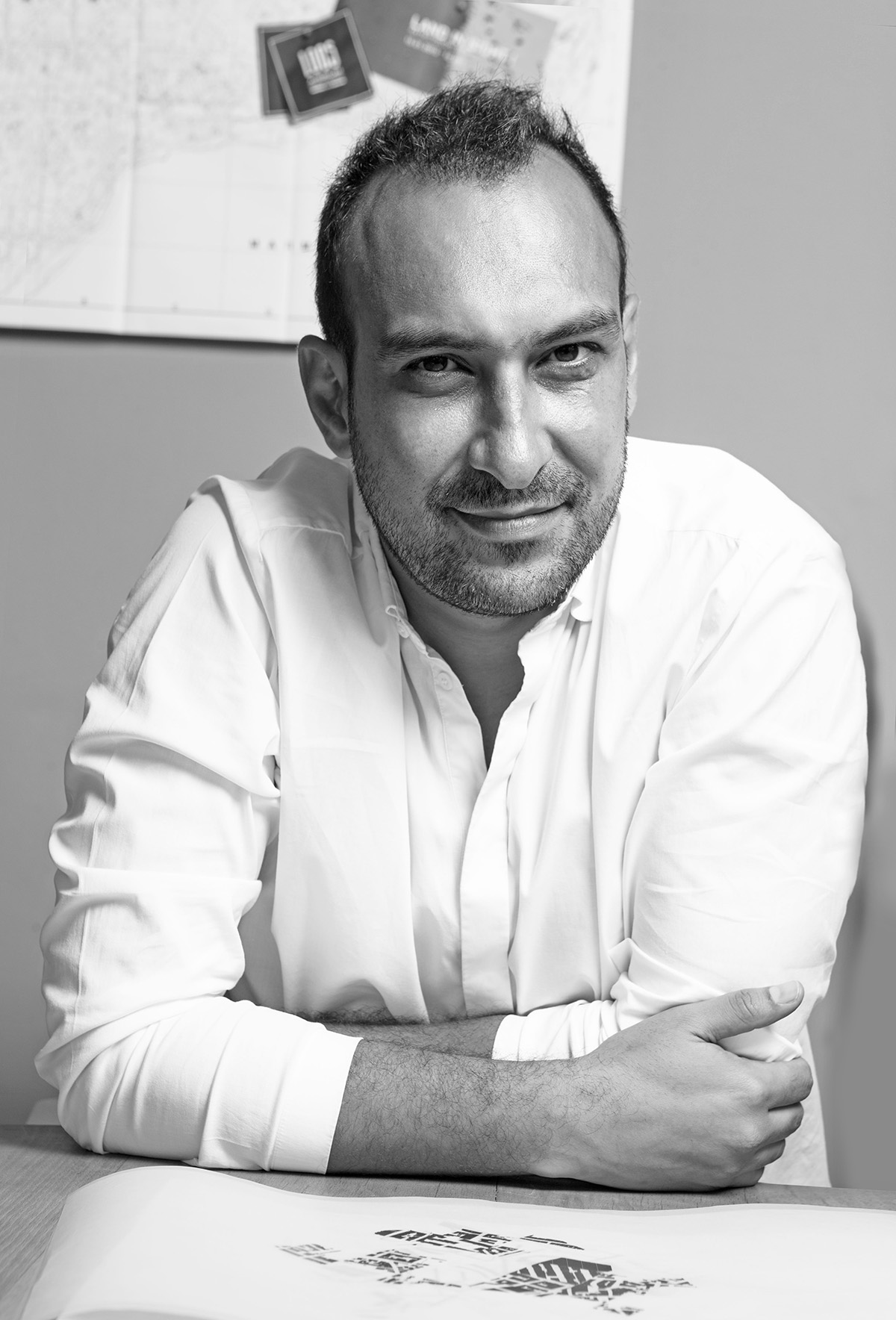
Alper Derinbogaz, founder of Salon/Alper Derinbogaz and a member of World Architecture Community, has received the 40 Under 40 Award, honoring the best emerging young architects & designers in Europe.
Organized by the European Centre for Architecture Art Design and Urban Studies and the Chicago Athenaeum: Museum of Architecture and Design, Derinbogaz has been named among 40 young talents who will impact future living and working environments, cities, and rural areas.
The award is given to architects and designers under the age of 40. It evaluates the candidates by focusing on all elements of an architect’s and designer’s studies, ranging from urban design to the built environment. In the evaluation process, it honours the names that give importance to the discovery and transmission of contemporary and aesthetic values.
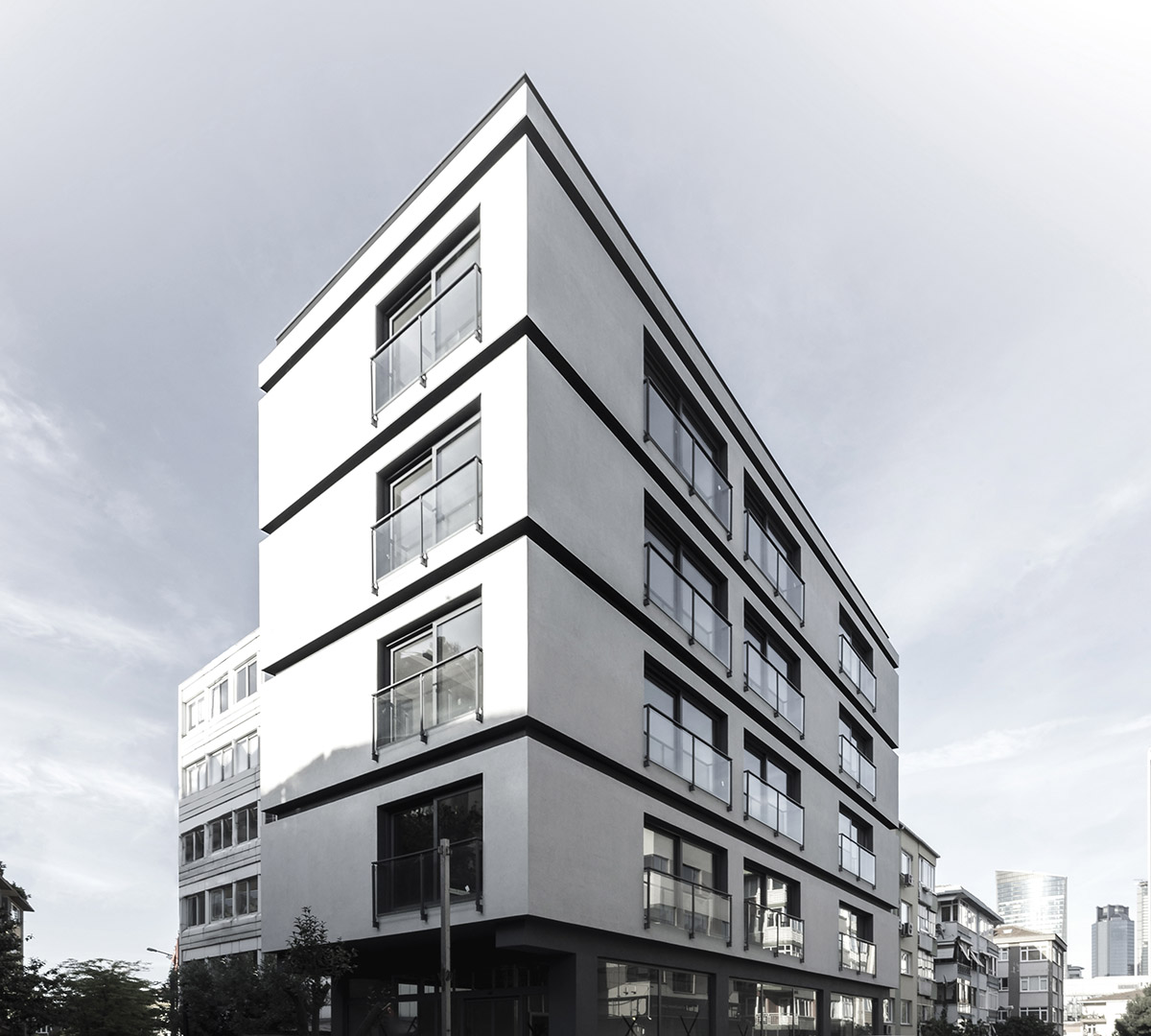
Derinbogaz's Hub Micro Housing was completed in Istanbul, Turkey. Image © Büşra Yeltekin
Derinbogaz develop projects at the intersection of urbanism, architecture, engineering and art. Istanbul Museum, Fitas Passage, E-Co Tower, Music Museum and Augmented Structures are some recent major work of Derinboğaz.
Derinbogaz’s Story From Art to Museums
Alper Derinboğaz graduated from Istanbul Technical University in 2005. He received a Fulbright Scholarship for his master’s degree in Architecture and Urbanism from the University of Los Angeles, California, and was awarded the UCLA Graduate Award. Prior to establishing the Salon in 2010 as an architecture practice focusing on tactical and experimental innovation in cities, he worked as an architect in museum, high-rise and education projects in Los Angeles.
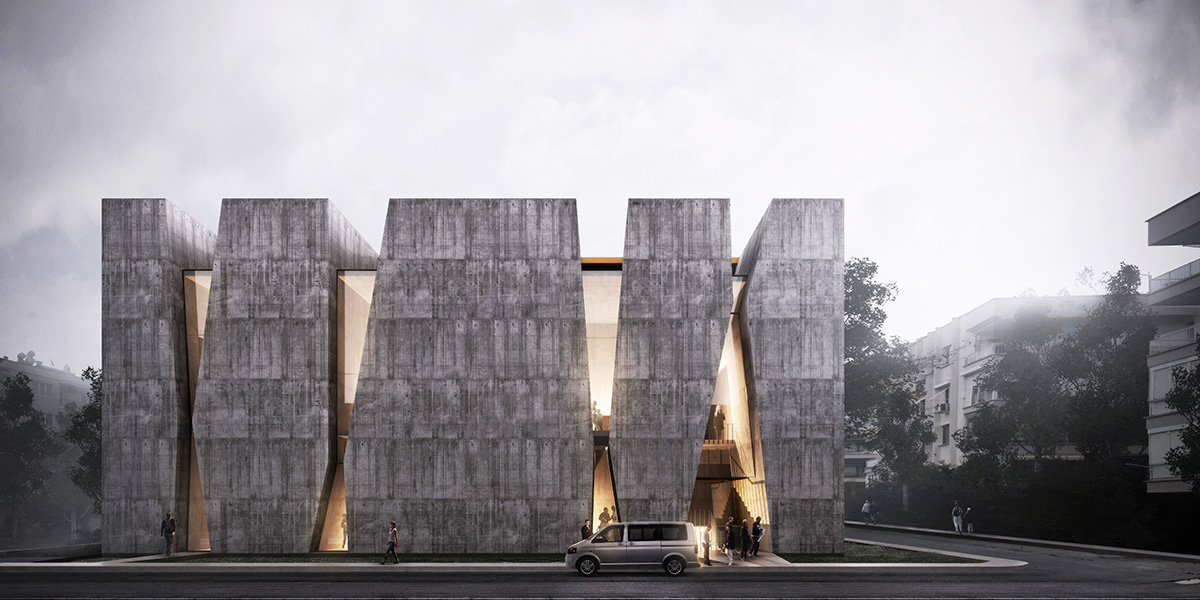
Parkopera, Antalya, Turkey. The project won the WA Award in the 23rd Cycle. Image courtesy of Salon/Alper Derinbogaz
In his practice, he investigates the possibilities of physical environment through the potential relations between space and context in a large timescale which develop evolving engagement with the built world. His designs greatly vary in scale from the museums to temporary installations and his work mostly intend to uncover and questions the essential elements of the given site and the theme.
The design approach, defined as amplified interventions, emphasizes social and environmental relations in works ranging from masterplan to museums and installations. In an interview, he summarizes the social aspect of his approach in practicing architecture: "Architecture transforms and directs the way people perceive life and the environment. With this in mind, we pay most of our attention to the relationship our projects can establish with the social structure."
"For instance, when designing a public space, we also care about how people are exposed and encounter with them. Although we do not have a public square culture, there are other areas of encounter. In order for people to come together, we often use architectural tools such as meeting areas, courtyards and side streets, and we aim to create contact points."
"Because the less we come together in everyday life, the more we are staying in the isolated ‘perception bubbles’ in digital life. In order to develop a true mutual understanding, architecture has the capacity to produce rare physical spaces for it and we care about the social aspect of architecture."
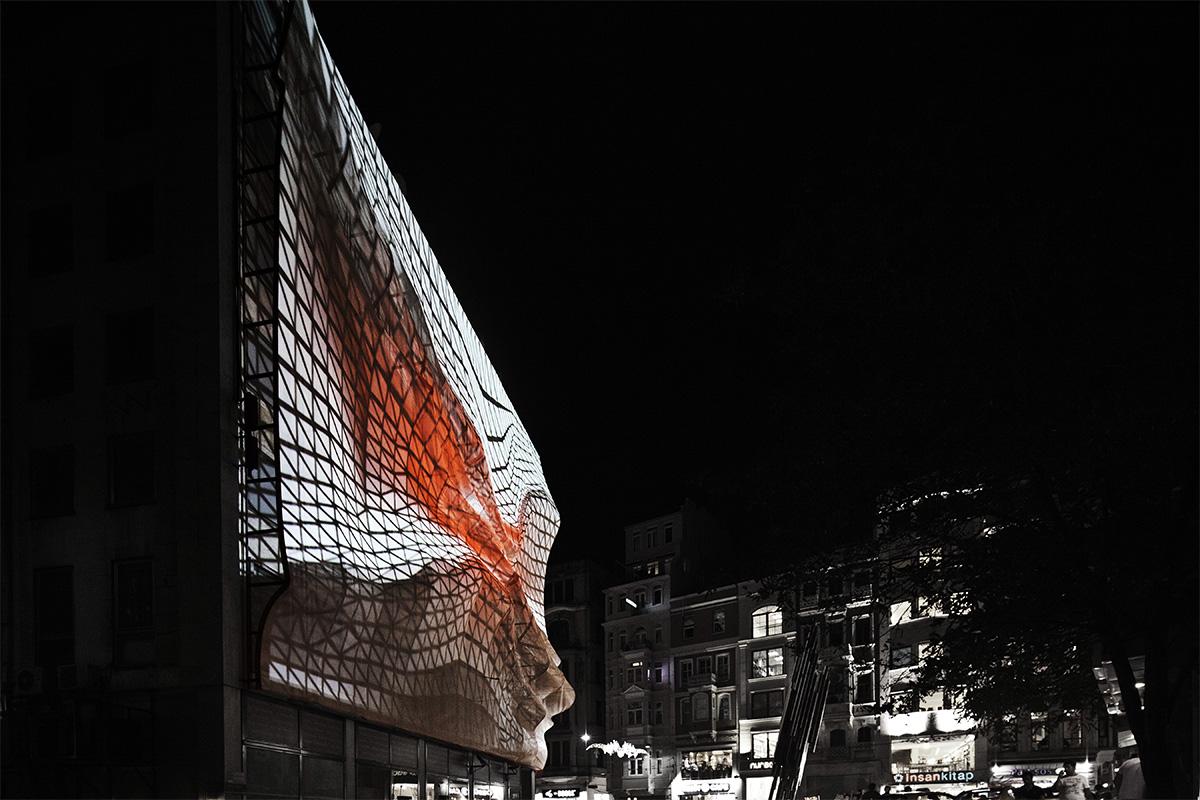
Derinbogaz's Augmented Structures in collaboration with Refik Anadol, Yapı Kredi Cultural Center, Istanbul, Turkey. Image © Maurizio Braggiotti
Derinbogaz's first public space project in Turkey, "Augmented Structure" was designed in 2011. It defines the relationships between architecture and public space and the integration of digital production techniques in the design process. The project, which has reconstructed the facade of the Yapi Kredi Culture and Arts Building, that overlooks to one of the most important public spaces of Istanbul, was accompanied by an exhibition documenting the research process.
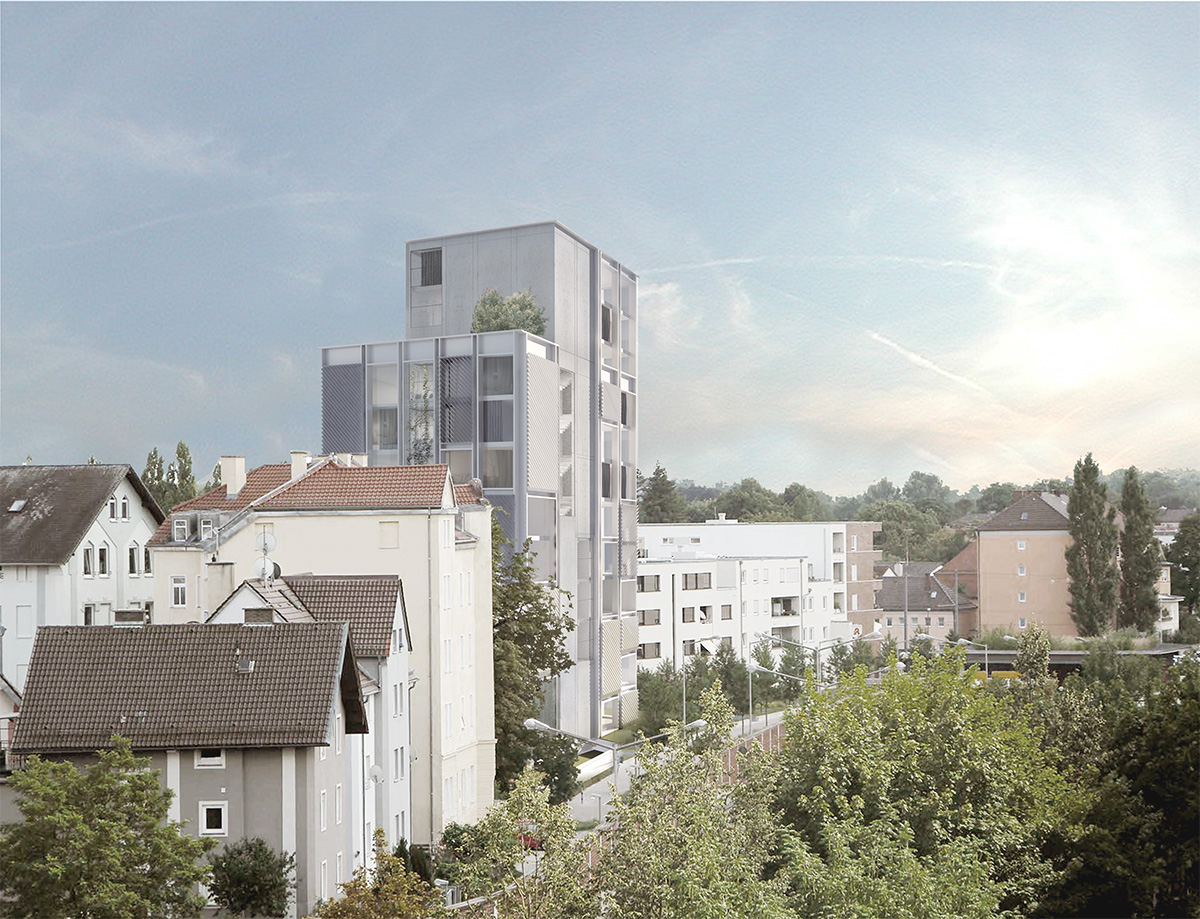
E-Co Tower, Augsburg, Germany. Image courtesy of Salon/Alper Derinbogaz
Another project, "Panorama", organized by British Council where artist Andreas Fogerasi developed the concept, is an installation that focuses on the visitor’s interaction with the urban landscape, acting as an intermediary in the most intense public spaces of Istanbul. The project is an experiment with architectural elements to create a playground environment while questioning the transformation of the city. Following the realization of these two and the ‘Gate’ project, Derinbogaz was awarded by the Young Architect Award of Arkitera Architecture Center in 2011.
In this period, his practice Salon investigate contemporary programs, execute latest fabrication technologies, and translate complex digital designs to buildings. Derinbogaz assesses the subject of innovation and technology in many projects and interviews in the context of architecture: "Innovation – at least the one as we know- was not always in favor of humanity. The reason for the increasing welfare levels is not the implementation of the mass- production band or developments of moving machines."
"Because technological developments alone are insignificant. What translates them into the future in the attention of their use and their adaptation in our lives."
"In this context, I think that our future predictions are implicit in designing these innovations for our purposes. As technology develops so rapidly yet humanitarian goals are still immature, I sincerely hope that the real innovation will follow the compromise of equal spaces where everyone can benefit from innovations in cities," he added.
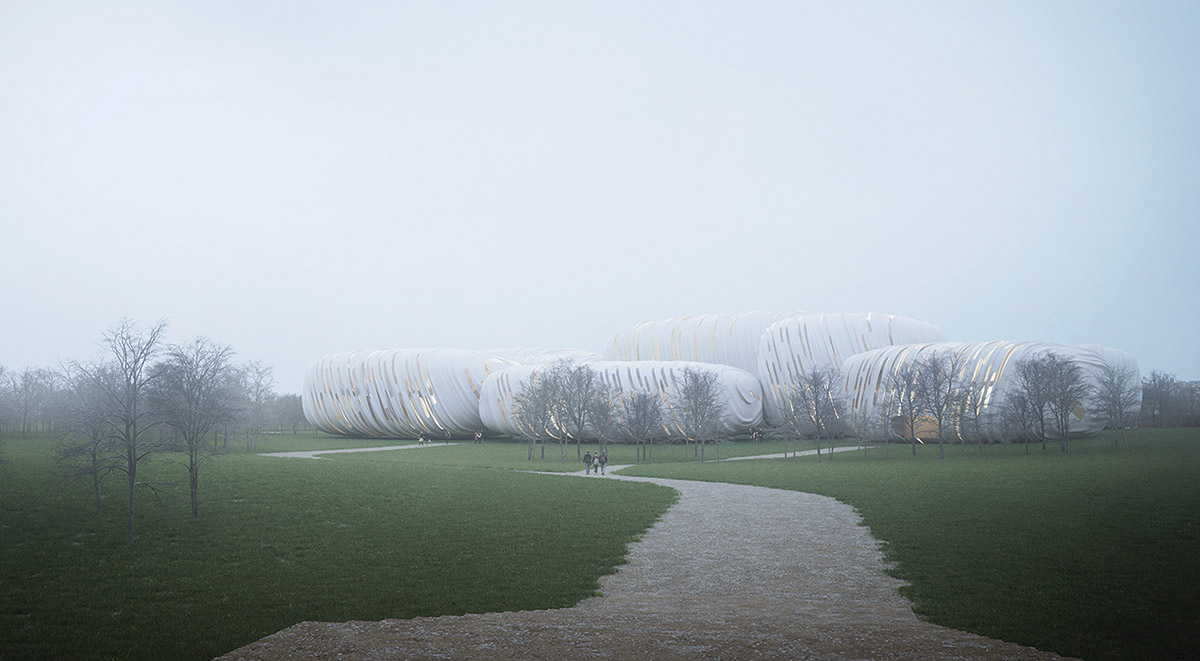
Derinbogaz's proposal for Science Island, Kaunas, Lithuania. The project won the WA Award in the 24th Cycle. Image courtesy of Salon/Alper Derinbogaz
In 2014, he also contributed to Turkey’s first national pavilion in the Venice Architecture Biennale which was curated by Tabanlioglu. Modalities of the Spontaneous, which examines the urban development of Istanbul based on Murat Guvenc’s research, took place as a research on how Istanbul’s topography steers random forms. This research on the intersection of architecture, planning and landscape was exhibited at the pavilion as Memory Spaces.
Derinbogaz’s Museum of Istanbul, which started its construction in 2016 is expected to open to the public in 2020. The museum in Istanbul will tell the long history of the city dating back to the 7th century BC, as fragments and aims to enable citizens and visitors to think deeply about the city by experiencing these fragments. The project, which was approved by the Cultural and Heritage Conservation Board in 2015, is the result of a team, consisting architects, curatorial team; Luca Molinari Studio; researchers and historians who are experts on Istanbul.
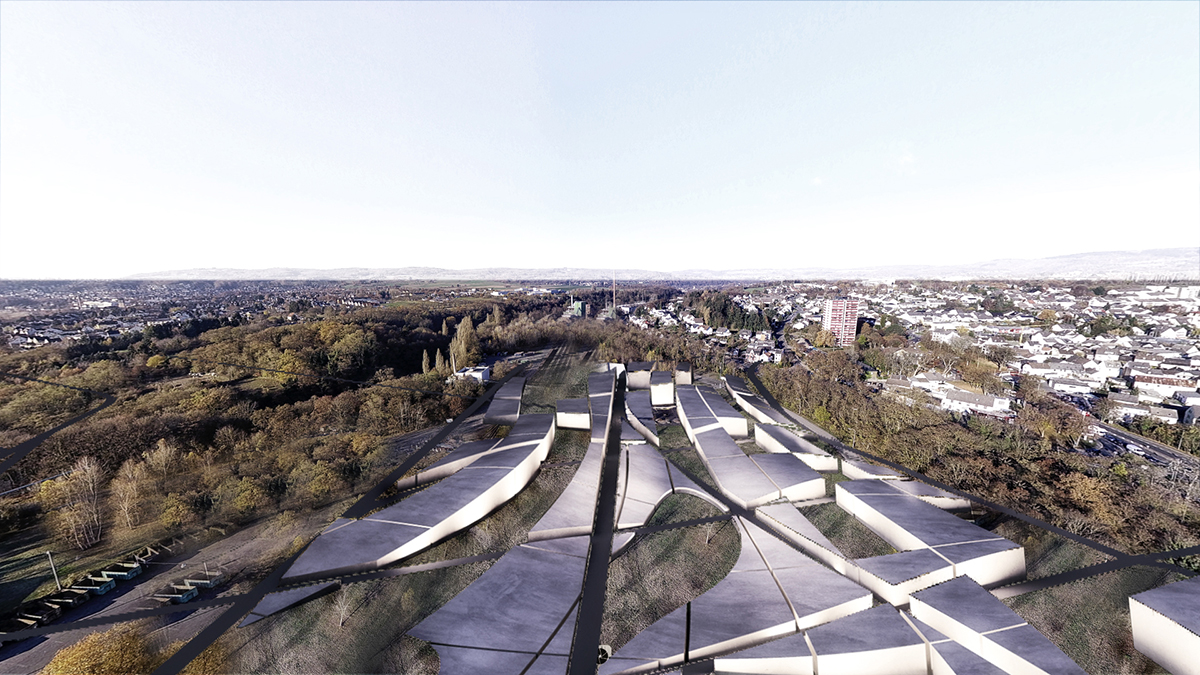
Salon/Alper Derinbogaz is currently working on a new masterplan "I4.0 Valley Masterplan" for Neuwied, Germany. Image courtesy of Salon/Alper Derinbogaz
In 2019, Derinbogaz’s under construction work continues on the reuse of Fitas Pasajı, one of Beyoğlu’s first modern “passage” cinemas in the late 1960s, in addition to the Antalya Greenhub Masterplan, The Music Museum, Chinimachi Museum, and Topos Villas projects.
Amongst his professional work, Derinbogaz is working as a studio director in the architectural design studio of Istanbul Technical University and Bilgi University, and as a jury member in various competitions. His design studios focus on the mutual relations between contextual originality and cultural buildings. Alper Derinbogaz runs his offices in Istanbul and Berlin.
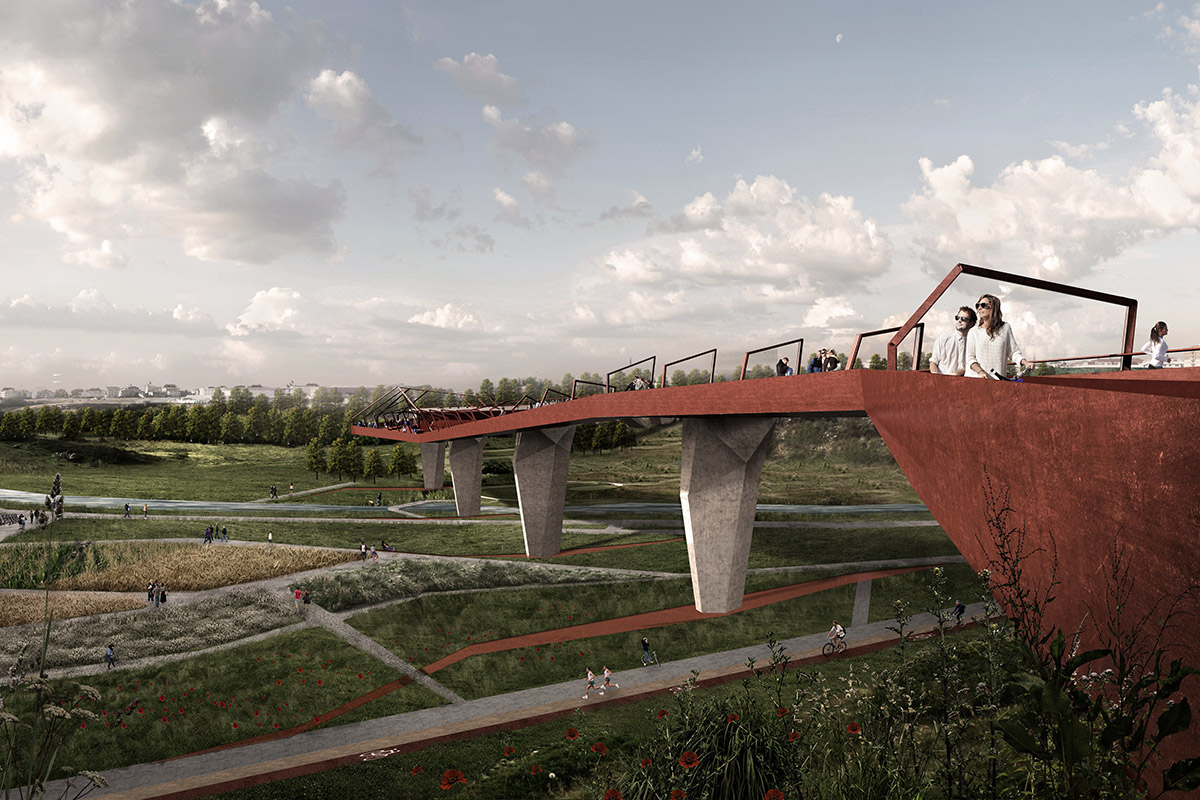
Derinbogaz's Valley of Life, Istanbul, Turkey. Image courtesy of Salon/Alper Derinbogaz
This year’s 40 Under 40 jury was comprised of Bita Azimi, Gaëlle Breton, Paul Gresham, Anne Grillet-Aubert, Ιoannis Karalias, Αghis Pangalos, Herve Roux, James Saywell.
Europe 40 Under 40 exhibition’s opening will take place in June 13th, 2019 at European Centre in Athens, Greece. Afterwards, the exhibition is planned to be hosted in Paris.
Top image courtesy of Salon/Alper Derinbogaz
> via Salon/Alper Derinbogaz
